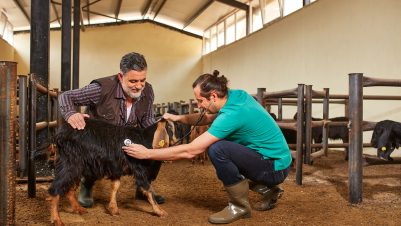Regular readers will notice that, for the first time in years, my column was missing from the pages of this essential publication last month. To be frank, like many of you I imagine, I was just too depressed and preoccupied to come up with much to say, other than 800 words on how depressed I was with the whole situation. We had been through various low points, starting with the escalating NHS crisis when it looked like we may exceed capacity, the PM in intensive care, the list goes on.
For vets, the closing of businesses and reduction of vets to emergency only was a shock for all of us. The week before we all learned what the word “furlough” means there seemed no alternative but mass redundancies, albeit if only medium term. Like many vets I was put out to grass for a few weeks which meant staying at home locked-in. We did not have it as bad as some other countries in that we were allowed out once a day to exercise, although the threat of suspending that permission was often discussed in the news briefing.
The whole country had gone from normal in February to unrecognisable by end of March. GCSEs, A-levels and university exams were all cancelled in one brief sentence from the PM. Our local primary school head described how he received the school closure email the week before he had to shut his school, and how it was the worst day of his career. For those of us running practices those weeks felt similar to us: after years of work to create a practice and build up a team it had all just been stopped. I said to our kids that you don’t want to be living through history, you want to spend your life in those chunks of time in the history books where nothing much happens. Whole decades where the main news is who won the Olympics, or a drawn-out political bickering over Brexit even. But try to avoid living through anything of true significance, like war or global pandemics.
On returning to work, I found my spirits lifted with some return to normality and to find that the practice was still running. Not in a long-term financially viable way, but still treating patients and managing to keep clients at more than the 2-metre regulation distance. We all felt “safe”. That word that now has a new value: “stay safe” being a new way of saying goodbye. Poisoned dogs were treated, fractures fixed and so on. Some sense of normality.
We also had to get to grips with the bogeyman of telemedicine. My GP friend is a big fan of telemedicine and they have gone from about 20 percent phone consults to 80 percent. Of course, the big difference is they can say “tell me where it hurts”. One example of this failing for me was a typical example of a “it’s got something stuck in its throat” teleconsult – a cat with possible dental disease, possible oral foreign body, etc. Between the owner and me we just couldn’t reach a diagnosis so in the cat came. Carrier disinfected and into the practice. Ten seconds into my full GPE it was obviously stomatitis causing dysphagia.
Other failings have been a “slightly lame” puppy from the owner’s description that turned out to have a physeal fracture and many catastrophically suffering non-weight-bearing lameness emergencies that trot round the car park and pull on all four feet on the lead. “Off colour” and “not himself” are also difficult to go very far with on phone or video. We have, like the human GPs, stuck mainly to telephone and used email photos a lot. We have access to video consult as well, but it is not much used as none of us are keen to perform in front of the camera and the thought of clients trying to film their pets and talk to you and manage the camera is not appealing. A well-filmed short video clip emailed in, however, is very useful. It has been a different way of working and not very efficient, but it has taught us a lot about communication. It is also useful to have years of experience to draw on; I think phone consults for more recent graduates would be more difficult.
VE day came towards the end of lockdown and served as a distraction and a reminder that things could be worse. On the theme of when not to be born, anyone living through one or even two world wars will be near the top of the list for a difficult life. One interviewee said their relative was in a POW camp in Japan for three years until he was released at the end of the war. Seven weeks and counting of lockdown is bad, but years of separation for that family, and for many others, with no promise of release, puts it into perspective.
We are now poised at the end of the beginning and no one knows what will happen next. Let’s take heart from one campaigner, Colonel Tom Moore: “The sun will shine on you again, the clouds will go away.”











